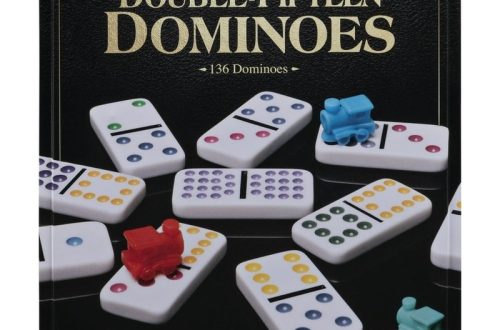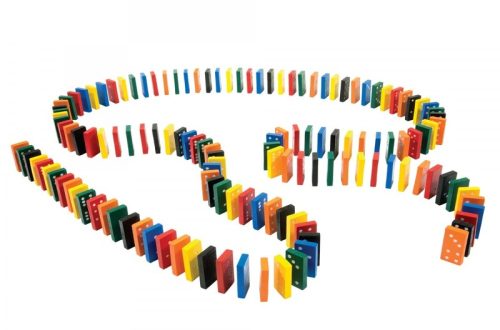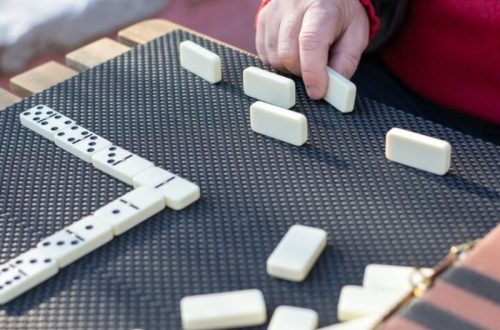Introduction
Clue, the classic mystery game, has captivated players of all ages for decades. Its engaging gameplay, strategic elements, and thrilling climax make it a timeless favorite. Whether you’re a seasoned detective or a newcomer to the world of Clue, this guide will equip you with the knowledge and skills to crack the case and emerge victorious.
Understanding the Game
The Basics of Clue
Clue is a game of deduction and strategy where players take on the role of detectives investigating a murder. The objective is to determine who committed the crime, where it happened, and the weapon used. Players move around a mansion, collecting clues and eliminating possibilities until they can confidently make an accusation.
The Game Components
Characters: The game features a colorful cast of suspects, each with their own unique personality and distinct traits. Notable characters include Colonel Mustard, with his military background and commanding presence; Miss Scarlet, the alluring socialite known for her cunning wit; and Professor Plum, the intellectual with a penchant for mystery. Each character brings a layer of intrigue and strategy to the game, compelling players to consider their motives and potential guilt.

Rooms: The mansion is artfully divided into various rooms, each a potential crime scene where crucial clues might be discovered. Rooms such as the library, ballroom, and conservatory evoke distinct atmospheres, creating not only a sense of place but also a strategic element to the game. Players must navigate these spaces carefully, weighing their chances of uncovering evidence or encountering fellow players who might thwart their plans.
Weapons: The game includes an assortment of deadly implements, ranging from the elegant candlestick to the more brutal wrench. Each weapon adds a unique flavor to the story, influencing the narrative of how the crime might have occurred. Players must consider not only who could be the murderer but also what weapon fits each potential scenario.
Cards: At the beginning of the game, each player receives a carefully curated set of character, room, and weapon cards. These cards are hidden from other players, fostering an atmosphere of secrecy and strategy. As players delve into the game, they must rely on these cards to form hypotheses and gather information while simultaneously keeping their own clues guarded. The hidden nature of the cards adds an exciting layer of tension to the game, as players must decipher clues and navigate through the uncertainty while determining the identity of the guilty party.
Mastering the Gameplay
Moving Around the Mansion
Players take turns rolling the dice to move around the board. They can enter rooms, suggest a crime, or make an accusation.
Suggestions and Accusations
A suggestion involves naming a suspect, a room, and a weapon. The player then asks other players to show cards that could disprove the suggestion. An accusation is a final guess made when a player believes they have solved the crime. If correct, the player wins; if incorrect, the game ends for that player.

Gathering Clues
As players move around the mansion, they collect clues by entering rooms and examining them. This information helps narrow down the possibilities for the murder.
Advanced Strategies
Deduction and Logic
Clue is essentially a game of logical deduction. To crack the case, you must meticulously analyze the information gathered throughout the game. Every suggestion made by a player offers valuable clues. Pay close attention to which cards are shown and which are not. By carefully tracking this information, you can systematically eliminate possibilities for the murder weapon, the victim, and the crime scene. For example, if a player suggests the murder happened in the kitchen with the knife, and no one shows a card, you can deduce that none of the players possess a Kitchen card or a Knife card. This process of elimination brings you closer to identifying the correct combination. Remember, every piece of information is crucial, so maintain a keen eye for details and employ logical reasoning to unravel the mystery.
Probability and Risk
Making an accusation is a risky move. Consider the evidence you have collected and the potential consequences of being wrong. Sometimes, it’s better to gather more information before making a final guess.
Bluffing and Deception
Bluffing is a powerful tool in the arsenal of a skilled Clue player. By strategically misrepresenting the cards in your hand, you can manipulate your opponents’ perceptions and gain a significant advantage. A well-placed bluff can divert suspicion away from your true suspects and create doubt in the minds of your adversaries. For instance, if you hold the “Kitchen” card, you might casually mention that you believe the murder occurred in the “Conservatory” to mislead others. This misinformation can cause your opponents to focus their attention on the wrong rooms, giving you more time to gather crucial evidence. However, bluffing is a risky endeavor. If your deception is uncovered, it can backfire and damage your credibility. Use bluffing judiciously and only when you believe it will have a high probability of success.

Variations and Challenges
Additional Rules and Variations
There are many variations of Clue that add new elements to the game: Over the years, the classic game of Clue has inspired numerous adaptations and variations, each designed to enhance gameplay and offer fresh challenges for players. These variations introduce innovative themes and mechanics, ensuring that even seasoned players can enjoy new experiences.
Some popular variations include introducing new characters, weapons, or rooms: One of the most exciting aspects of Clue variations is the incorporation of new suspects, weapons, and locations. For instance, a classic mystery theme might be replaced with a contemporary or fantastical setting, featuring characters with distinctive traits and backstories that enrich the narrative. Adding new weapons, such as a crossbow or a poison vial, can also shift strategies, compelling players to consider different scenarios and hypotheses. Similarly, introducing unfamiliar rooms, such as a secret laboratory or an outdoor garden, transforms the dynamics of the game board, offering fresh opportunities for exploration and discovery.
Changing the rules for moving around the board: Variations may also modify the movement mechanics, introducing elements like special abilities, alternate pathways, or bonus moves. For example, players might acquire the chance to teleport to another room or might face obstacles that alter their movement options, leading to unpredictable outcomes. These rule changes can significantly impact strategies and add layers of complexity, requiring players to adapt quickly to evolving gameplay. By embracing these innovative elements, variations of Clue keep the mystery alive and invite players to engage in exciting new ways, enhancing the joy of deduction and competition. Whether through thematic alterations or nuanced rule changes, the diverse adaptations ensure that Clue remains a captivating choice for board game enthusiasts.
Multiplayer Challenges
Playing Clue with more than three players can significantly enhance the game’s complexity and excitement. With additional players, the deduction process becomes more intricate as there are more minds at work, analyzing clues and forming theories. The increased number of players also creates a more dynamic social environment, fostering opportunities for strategic alliances and unexpected twists. Collaborating with other players to share information and eliminate possibilities can be a powerful tactic. However, forming alliances requires careful consideration, as trust and loyalty can be tested as the game progresses. Ultimately, the larger player count adds a new layer of challenge and unpredictability to Clue, making each game a thrilling adventure.
Conclusion
Clue is a game that offers endless entertainment and challenges. By understanding the rules, mastering strategies, and embracing the thrill of deduction, you can become a true detective and unravel the mysteries of the mansion. So gather your friends, sharpen your wits, and let the game begin!





